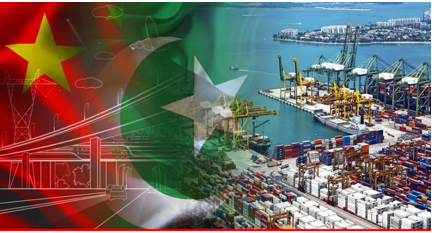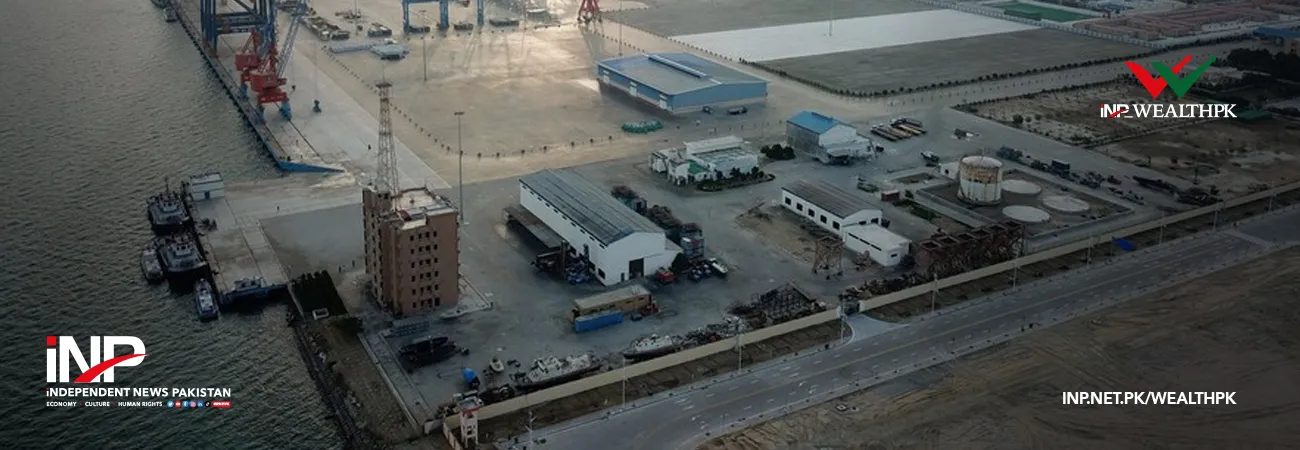آئی این پی ویلتھ پی کے
Ayesha Saba
Experts have emphasized that transforming Gwadar into a globally competitive trade and industrial hub hinges on effective public-private collaboration, relocation of foreign industries, particularly from China, and development of a reliable energy infrastructure.

Talking with WealthPK, Waqar Ahmed, a trade policy expert at Trade Development Authority of Pakistan (TDAP), said Gwadar's transformation into a globally competitive trade center could not be realized through government-led efforts alone. He explained that while infrastructural development like roads, power plants, and port facilities had received considerable state attention under CPEC, absence of a robust business ecosystem driven by private investment continued to limit the port’s potential.
“What we have is infrastructure without integration,” he said, highlighting the underutilization of port facilities and industrial zones due to limited commercial activity. One of the key challenges identified by him is trust deficit between the government and private investors. Bureaucratic hurdles, lack of transparency in project planning, and inconsistent policy implementation have discouraged many domestic and international investors from committing long-term ventures in Gwadar.
“Industrial expansion cannot happen in isolation. It must be backed by modern infrastructure, efficient logistics, and a skilled workforce,” he noted. He said that unless the state created a reliable regulatory and security framework, the private sector would remain reluctant to participate meaningfully. Public-private collaboration cannot thrive in an environment of policy uncertainty, he warned.
Talking to WealthPK, Majid Shabbir, former advisor of Islamabad Chamber of Commerce and Industries, and CEO of Ifsha Consultants, said a promising opportunity lay in the relocation of Chinese industries to Gwadar, which could enable Pakistan to adopt advanced manufacturing technologies, boost industrial output, and significantly enhance its technological capabilities.
“Gwadar can serve as a launchpad for high-value industrialization, provided we create the right environment for foreign and domestic investors,” Majid said. One of the most pressing requirements for this transformation is the availability of consistent and reliable energy. Unstable power supply is a critical bottleneck in Gwadar industrial operations. “No industrial hub can thrive without stable electricity.
The government must prioritize investment in local energy generation, particularly renewable sources, and ensure connectivity with the national grid,” he said. To build investor confidence, he advocated the establishment of an empowered Gwadar Development Authority Board with equal representation from government institutions, the private sector, and local stakeholders. This body will help ensure transparent decision-making, streamlined regulatory processes, and accountability.
Credit: INP-WealthPk












